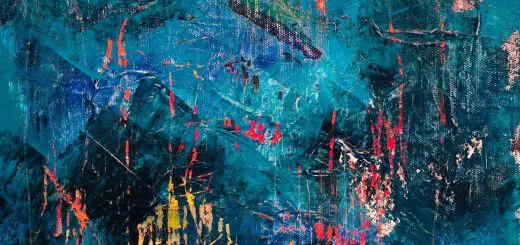Japanese Afterlife Beliefs: Yomi and Pure Land

Looking for more amazing products? Check out our online store and explore our collection here! Happy shopping!
Before diving in, please note: This post is for informational purposes only. If you’d like to know more about how we approach topics, feel free to check out our friendly Disclaimer Page.
Hey there, amazing readers! 
We’re committed to delivering quality posts, and your support (even just sticking around despite the ads) means everything to us. So, bear with us, and thanks for helping us keep the good vibes rolling. Now, on to the fun stuff!
TRANSLATE BUTTON AT THE END OF THE ARTICLE
Exploring Japanese Afterlife Beliefs
Japanese afterlife beliefs are deeply rooted in the country’s rich cultural and religious history.
These beliefs center around two main concepts: Yomi, the land of the dead, and Pure Land, a paradise in Japanese Buddhism.
Understanding these beliefs provides insight into the way Japanese people view life, death, and the journey beyond.
Both Yomi and Pure Land play significant roles in shaping the spiritual landscape of Japan, influencing everything from religious practices to societal norms.
Understanding Yomi: Land of the Dead
Yomi is often referred to as the Japanese underworld or land of the dead.
In Japanese mythology, Yomi is believed to be a dark and gloomy realm where souls go after death.
Unlike Western concepts of hell, Yomi is not a place of eternal punishment but rather a shadowy realm where spirits reside.
The journey to Yomi is portrayed as a treacherous one, filled with obstacles and challenges that must be overcome by the deceased.
Mythological Origins of Yomi
Yomi finds its origins in Japanese mythology, specifically in the ancient texts of Shinto and Buddhist traditions.
According to these myths, Yomi is ruled by the god Izanami, who is often depicted as a fearsome figure associated with death and the underworld.
Izanami’s story is one of tragedy and loss, reflecting the cyclical nature of life and death in Japanese beliefs.
The mythological roots of Yomi give insight into the cultural significance of death and the afterlife in Japanese society.
Journey to the Underworld in Japanese Culture
The journey to the underworld is a common motif in Japanese folklore and literature, reflecting the cultural fascination with death and the afterlife.
Stories of heroes traveling to Yomi to retrieve lost loved ones or priceless treasures are prevalent in Japanese tradition.
These tales often highlight the importance of honor, bravery, and sacrifice in the face of death, emphasizing the interconnectedness of the living and the dead.
Yomi in Shinto and Buddhist Traditions
In Shinto belief, Yomi is seen as a realm of purification and renewal, where souls undergo a process of cleansing before being reincarnated.
Shinto rituals and ceremonies often involve offerings to the deceased to ensure their safe passage to Yomi.
In contrast, Buddhist traditions view Yomi as a temporary state before rebirth, with the ultimate goal of attaining enlightenment and liberation from the cycle of death and rebirth.
Pure Land: Paradise in Japanese Buddhism
Pure Land is a concept in Japanese Buddhism that represents a heavenly realm of peace and enlightenment.
It is believed to be presided over by Amida Buddha, a compassionate deity who guides souls to the Pure Land after death.
Pure Land is often described as a paradise of bliss and tranquility, where the faithful are free from suffering and can achieve spiritual awakening.
Amida Buddha and the Pure Land
Amida Buddha, also known as Amitabha in Sanskrit, is a central figure in Pure Land Buddhism.
He is revered for his boundless compassion and mercy towards all beings, offering salvation to those who call upon his name.
Followers of Pure Land Buddhism believe that by invoking Amida Buddha’s name with sincerity and devotion, they can attain rebirth in the Pure Land and escape the cycle of samsara.
Salvation and Rebirth in Pure Land
The concept of salvation in Pure Land Buddhism is centered around the idea of faith and devotion to Amida Buddha.
Followers believe that by placing their trust in Amida’s promise of rebirth in the Pure Land, they can escape the cycle of suffering and attain enlightenment.
Salvation in Pure Land is not based on personal merit or good deeds but on the grace and compassion of Amida Buddha.
Contrasting Yomi and Pure Land
While both Yomi and Pure Land are realms associated with the afterlife in Japanese beliefs, they differ in their nature and purpose.
Yomi is a realm of darkness and purification, where souls undergo a process of renewal before possible reincarnation.
In contrast, Pure Land is a realm of light and enlightenment, where the faithful are reborn into a state of eternal bliss and spiritual awakening.
The contrast between Yomi and Pure Land reflects the duality of life and death in Japanese culture.
Influence of Afterlife Beliefs in Japanese Society
Japanese afterlife beliefs have a profound influence on various aspects of society, including art, literature, rituals, and customs.
The reverence for ancestors and the deceased is a central tenet of Japanese culture, shaping practices such as Obon, a festival dedicated to honoring the spirits of the dead.
Beliefs in Yomi and Pure Land also underpin funeral rites and memorial services, providing comfort and guidance to the living as they navigate the mysteries of death and the afterlife.
Rituals and Practices Related to Yomi and Pure Land
Rituals and practices related to Yomi and Pure Land are an integral part of Japanese religious life.
Shinto ceremonies often involve offerings to the deceased, ensuring their safe passage to Yomi and honoring their memory.
In Pure Land Buddhism, chanting the name of Amida Buddha is a common practice believed to invoke his compassion and bring salvation to the faithful.
These rituals serve to connect the living with the dead and bridge the gap between this world and the next.
Modern Interpretations of Japanese Afterlife Beliefs
In modern Japan, traditional afterlife beliefs have evolved to adapt to changing societal norms and values.
While the concepts of Yomi and Pure Land remain central to Japanese spirituality, new interpretations and practices have emerged to cater to contemporary sensibilities.
Some people blend elements of Shinto and Buddhist beliefs in their spiritual practices, while others adopt a more secular approach to death and the afterlife.
Despite these changes, the influence of Japanese afterlife beliefs continues to be felt in various aspects of society, reflecting the enduring legacy of ancient traditions.
Conclusion
Japanese afterlife beliefs encompass a rich tapestry of mythology, tradition, and spirituality that have shaped the cultural landscape of the country for centuries.
The concepts of Yomi and Pure Land offer insight into the Japanese perspective on life, death, and the journey beyond.
Understanding these beliefs not only provides a glimpse into the intricacies of Japanese culture but also sheds light on the universal themes of mortality, salvation, and rebirth that resonate across time and space.
As Japan continues to navigate the complexities of modernity, its afterlife beliefs serve as a reminder of the enduring power of tradition and the eternal quest for meaning in the face of mortality.

The Enlightenment Journey is a remarkable collection of writings authored by a distinguished group of experts in the fields of spirituality, new age, and esoteric knowledge.
This anthology features a diverse assembly of well-experienced authors who bring their profound insights and credible perspectives to the forefront.
Each contributor possesses a wealth of knowledge and wisdom, making them authorities in their respective domains.
Together, they offer readers a transformative journey into the realms of spiritual growth, self-discovery, and esoteric enlightenment.
The Enlightenment Journey is a testament to the collective expertise of these luminaries, providing readers with a rich tapestry of ideas and information to illuminate their spiritual path.
Our Diverse Expertise
While our primary focus is on spirituality and esotericism, we are equally passionate about exploring a wide range of other topics and niches 

To ensure we provide the most accurate and valuable insights, we collaborate with trusted experts in their respective domains 
Our blog originally focused on spirituality and metaphysics, but we’ve since expanded to cover a wide range of niches. Don’t worry—we continue to publish a lot of articles on spirituality! Frequently visit our blog to explore our diverse content and stay tuned for more insightful reads.
Hey there, amazing reader! 
Check out our store here and take a peek at some of our featured products below! Thanks for being awesome!










